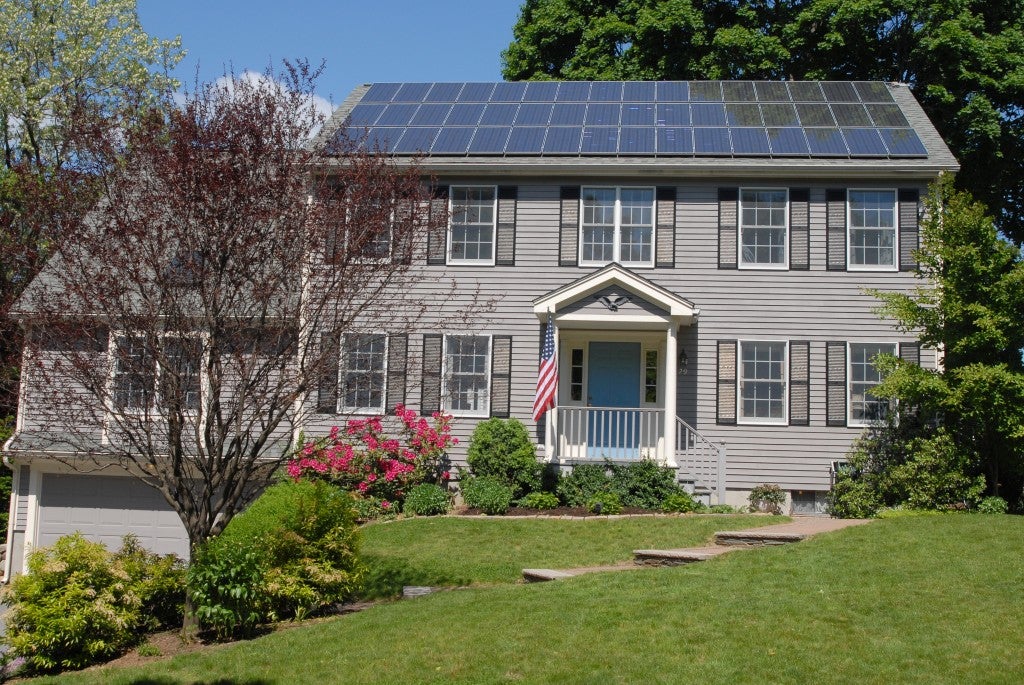Let’s Remove Roadblocks to North Carolina Solar Energy

Earlier this year, North Carolina considered providing the aerospace giant Boeing with incentives and other tax credits worth up to $2.5 billion if the company built a new manufacturing facility in the state. Given the high cost of attracting industry and jobs, North Carolina should be removing roadblocks instead for one of the fastest growing sectors already in the state – solar energy.
One recent study ranks North Carolina #2 in the country for total solar investment, and another ranks it as #3 in the country for the total amount of solar energy installed in 2013. This represents significant amounts of private capital being put to good work, creating jobs and making our farms, homes, and businesses more energy independent.
Despite the growth of North Carolina’s solar industry, some companies are being shut out of the marketplace because of state policies that have failed to keep pace with 21st century energy technologies and innovation. For instance, one law prevents energy companies other than Duke Energy from selling power to homeowners and businesses in Duke’s service territory.
North Carolina is one of the few states with this law, and it hampers the ability to attract private investment from the country’s largest solar companies. It also prevents existing solar companies in the state from offering a wider range of products and services to consumers, such as solar financing with no upfront cost.
States with more welcoming laws are the beneficiaries of greater investment and job creation. North Carolina is being left out.
Outside of North Carolina, SunRun, Sungevity, SunEdison and SolarCity are a few of the energy companies that are creating thousands of jobs and billions of dollars of investments around the country. SolarCity, for example, operates in 13 states and added over 2,000 full-time employees since 2007. The company’s business model is to offer homeowners and businesses solar energy with little to no upfront cost and at prices below those offered by the utility.
Two years ago, SolarCity and Charlotte, North Carolina-based Bank of America announced a five-year plan to invest $1 billion in solar panels for U.S. military housing across the country. Regrettably, North Carolina law prevents SolarCity from selling solar energy directly to consumers. This means military personnel in the state will not be able to benefit from this investment because the state has yet to transition to a governance structure that accommodates 21st century technologies and business models.
Another North Carolina roadblock is the uncertainty about the future of “net metering,” a program for rooftop solar owners that ensures they are paid for the excess energy their systems produce. The electric meter measures how much electricity flows back to the grid from the solar panel and a corresponding credit is applied to the customer’s monthly energy bill. What’s uncertain about this program is how much the utility will continue to pay for each megawatt hour of solar energy sold back to the utility. North Carolina should fairly reward solar owners for the benefits that their solar panels provide to the grid. In addition, the state should provide certainty to homeowners and businesses on the price they can expect to receive for their excess electricity. This certainty will give homeowners and solar installers the confidence they need to make long-term investments in solar energy.
Unlike the Boeing plant that ultimately went to the state of Washington, the solar industry has deep roots in North Carolina. It is ready and able to provide clean energy to homes and businesses – if it is able to tear down the roadblocks. North Carolina must foster greater competition and energy choice for consumers. And it must develop fair, transparent, and stable regulations that enable companies to make long-term investment decisions.












One Comment
“Renewable energy creates jobs. Just look at the U.S. solar industry, where jobs doubled from 2009 to 2011.” http://clmtr.lt/c/Fu10Bbt0cMJ